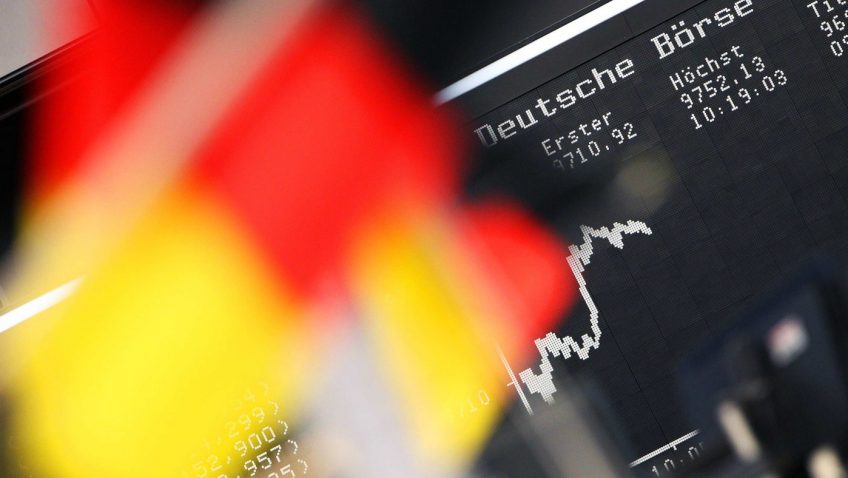The context
Moody’s has downgraded its outlook for German banks to “negative” from “stable” as profitability and overall creditworthiness weaken in a low interest rate environment.
In a report published Thursday, the ratings giant said the already weak profitability of German banks will decline further over the next 12 to 18 months as net interest income falls.
“Traditional commercial banks and in particular deposit-funded institutions will struggle to out-earn their costs in the continuing low interest rate environment, even though loan-loss provisions are unsustainably low,” said Bernhard Held, Moody’s vice-president and senior credit officer.
The bleak prognosis comes just a day after the European Central Bank (ECB) warned that falling bank profitability posed one of the biggest threats to economic growth in the euro zone.
The German Bundesbank signaled similar concerns Thursday. “We see that credit risk is underestimated, so given the 10 good years we had in the German economy, if there’s backward looking expectations, you may underestimate the risk going forward, so that is one of the vulnerabilities,” Claudia Buch, vice-president of the Bundesbank told CNBC Thursday.
Moody’s highlighted that smaller deposit-funded banks in Germany will take the hardest hit, with maturing loans and securities repricing at lower rates, while interest rates paid on retail deposits are “in practice at or close to 0%.”
The straitjackets of low interest rates
Rising rates are good for banks since it allows them to lend out money to investors at a profitable rate of interest. Lower interest rates restrict a bank’s ability to make profits, thus adding pressure on margins.
Negative interest rates, such as in Europe, penalize the banks for holding cash deposits at central banks. The current ECB deposit rate is -0.5%, the lowest on record.
A strong German economy
Faced with persistent low or negative rates, Moody’s suggested that German retail banks are increasingly considering charging negative rates themselves to large retail depositors.
However, the agency suggested that borrowers’ repayment capacity will remain high on the back of low rates, a robust labor market and buoyant domestic demand.
Moody’s forecast German GDP (gross domestic product) growth at 0.6% for 2019 and 1% in 2020 on account of slowing global trade, which has also facilitated negative outlooks for the automotive, chemicals and manufacturing sectors.
The opinion of YoungDiplomats
Geopolitics gathers a set of trends. These trends deal with power and how power is organized in a given region. Economy can reverse a trend. Germany has confirmed that the economic power of Europe is in its hands. The Moody’s downgrading is one element showing that the German economy can sometimes slowdown. If Germany is hit by a crisis in its banking system, the german economic hegemony can be tossed by its European rivals.
New rivalries could emerge. Indeed, since the end of the Second World War, Germany has built its power on economy and industry. Consequently, tensions could appear in case of a German recession.
Source
https://www.cnbc.com/2019/11/21/moodys-downgrades-outlook-for-german-banking-system-to-negative.html







